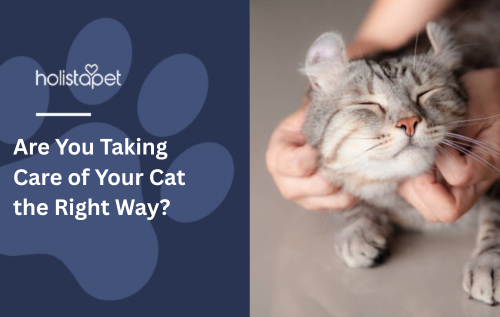Cats may be independent by nature, but they still rely on us to give them the best possible care. Whether you're a first-time feline parent or a seasoned pet lover, knowing how to take care of a cat goes beyond just feeding and cuddling. Proper cat care means understanding their needs, behavior, diet, health, and environment. This guide covers the essentials to ensure your cat lives a happy and healthy life.
 Daily Basics: What Your Cat Needs Every Day
Daily Basics: What Your Cat Needs Every Day
1. Fresh Food and Clean Water
Cats thrive on consistency. Feed them high-quality cat food that matches their age and health needs—kitten, adult, or senior. Always provide fresh water in a clean bowl.
Tip: Cats often prefer running water. Consider a pet fountain to encourage hydration.
2. Clean Litter Box
Scoop it daily and change the litter regularly. Keep the box in a quiet, low-traffic area. Cats can become stressed if their box isn’t clean.
3. Playtime and Stimulation
Cats need both physical and mental exercise. Use toys, feather wands, or laser pointers for interactive play. Puzzle feeders also help prevent boredom.
4. Safe and Cozy Resting Areas
Provide warm, soft spots for your cat to nap—on windowsills, cat beds, or even cardboard boxes.
Essential Long-Term Care Tips
1. Veterinary Checkups
Schedule regular vet visits for vaccinations, deworming, and annual wellness exams. Spaying or neutering your cat also helps reduce health and behavioral problems.
2. Grooming and Hygiene
Brush your cat regularly, especially if they have long hair. It reduces hairballs and keeps their coat shiny. Also, trim their nails every few weeks and check their ears for signs of infection.
3. Cat-Proofing Your Home
Secure windows, remove toxic plants, and keep small objects out of reach. Consider investing in a scratching post to protect your furniture.
Understanding Cat Behavior
Cats communicate through body language and subtle behaviors. Learn their cues to strengthen your bond:
-
Purring usually means contentment.
-
Hiding may signal stress or illness.
-
Tail flicking can indicate irritation.
Responding appropriately builds trust and emotional connection with your pet.
 Frequently Asked Questions
Frequently Asked Questions
Q: How often should I feed my cat?
A: Most adult cats do well with two meals a day. Kittens may require more frequent feedings.
Q: Can cats be left alone all day?
A: Yes, but not for long periods. If you’re gone all day, provide toys, scratching posts, and windows with views. For extended absences, consider a pet sitter.
Q: What vaccinations does my cat need?
A: Core vaccines typically include rabies, feline distemper (FVRCP), and feline leukemia (FeLV), depending on lifestyle and vet recommendations.
Q: How do I know if my cat is sick?
A: Look for changes in eating, litter habits, energy levels, or grooming. If anything seems off, consult a vet immediately.
Final Thoughts
Caring for a cat means creating a loving, stable environment. It’s not about being perfect—it’s about being present, attentive, and proactive. When you meet their needs consistently, your cat will thrive and reward you with companionship, affection, and years of loyalty.
Helpful Notes
-
Avoid giving your cat human food—some can be toxic (e.g., onions, chocolate, grapes).
-
Keep your cat indoors or provide supervised outdoor time for safety.
-
Microchipping is a smart way to help reunite you with your cat if they ever get lost.
-
Rotate toys weekly to keep your cat interested.
Want more pet care tips? Bookmark our site and explore our blog for expert guides on all things furry and four-legged!


 CBD Oil for Cats - Fast Acting
CBD Oil for Cats - Fast Acting
 CBD Cat Treats - Easy Dose
CBD Cat Treats - Easy Dose
 CBD Calming Chews for Cats - Highly Rated
CBD Calming Chews for Cats - Highly Rated
 CBG Oil for Dogs and Cats - Loved by Thousands
CBG Oil for Dogs and Cats - Loved by Thousands





Leave a comment
This site is protected by hCaptcha and the hCaptcha Privacy Policy and Terms of Service apply.